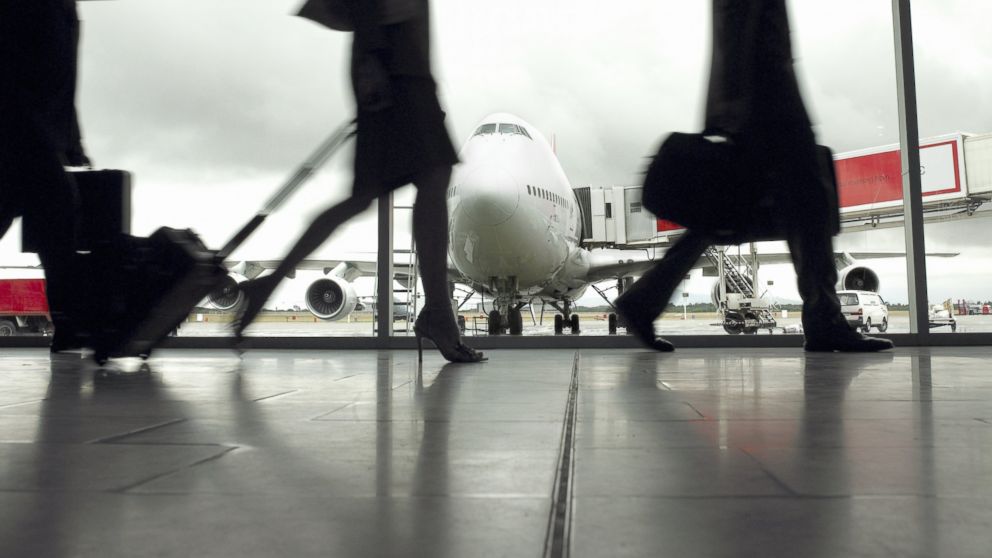Airport Security Directives Likely Amid Syria Bomb Threat
Proposed measures include electronics and shoe scrutiny, secret actions.

— -- The Obama administration is planning to move forward with efforts to increase security at airports overseas amid deepening concerns that terrorists in war-ravaged Syria are trying to develop a new generation of bombs that could be smuggled onto commercial planes, sources told ABC News.
Specifically, the Department of Homeland Security is likely to issue a series of urgent directives in the next two weeks to airport authorities and airlines operating overseas, requiring them to expand passenger screening if they want to fly commercial planes into the United States, the sources said.
The proposed directives include requiring airport authorities overseas, particularly in Europe, to further scrutinize U.S.-bound passengers’ electronics and shoes, to set up more explosives detection machines, to increase random screenings of travelers and to take a series of secret actions the public would never see.
Syria Threat Could Prompt Changes at Airports
Teen Reveals Why He Hid in Plane Wheel Well
Man Breaks Past Security, Into Plane at Seattle Airport
At least some of those proposed directives have now been green-lighted by administration officials, and a notification could be sent to airlines and airports within the next two weeks, the sources said.
"This is never a decision that [DHS] makes lightly," one source said. "It’s something that has to be warranted. It has to be something particularly serious for [DHS] to even consider increasing security."
The Department of Homeland Security, FBI and other U.S. agencies have been quietly debating for months whether to ask overseas partners to boost their security posture and whether to take action here at home. The back-and-forth has been based on intelligence showing that a particularly extreme "subset" of terrorist groups in Syria was working alongside operatives from al Qaeda's prolific offshoot in Yemen to produce "creative" new designs for bombs, as one source put it.
Earlier this year, U.S. officials learned that associates of the al Qaeda affiliate in Syria – the Al Nusrah Front – and radicals from other groups were teaming up with elements of the Yemen-based group Al Qaeda in the Arabian Peninsula, which built such innovative devices as the "underwear bomb" that ultimately failed to detonate in a plane over Detroit Christmas Day 2009.
Bolstered by more recent intelligence, U.S. analysts believe the "subset" of extreme terrorists in Syria could be looking to down a U.S.- or European-bound plane, with help from one of the thousands of Americans and other foreign fighters carrying U.S. and European passports who have joined Al Nusrah Front and other groups in the region.
While intelligence obtained by the U.S. government has not indicated a specific target or a specific timeline, one source called the threat "different and more disturbing than past aviation plots."
Asked Monday by ABC News whether his European counterparts were doing enough to address the threat emanating from Syria, FBI Director James Comey said European authorities are "doing a tremendous amount of work" but that it was "hard for [him] to say" whether it's enough.
Though U.S. officials have been outspoken about the dangers posed by Al Qaeda in the Arabian Peninsula and, separately, the threat of foreign fighters in Syria, the latest intelligence shows that the two threats have bonded in an unusually powerful way, essentially creating a sum more worrisome than its parts.



